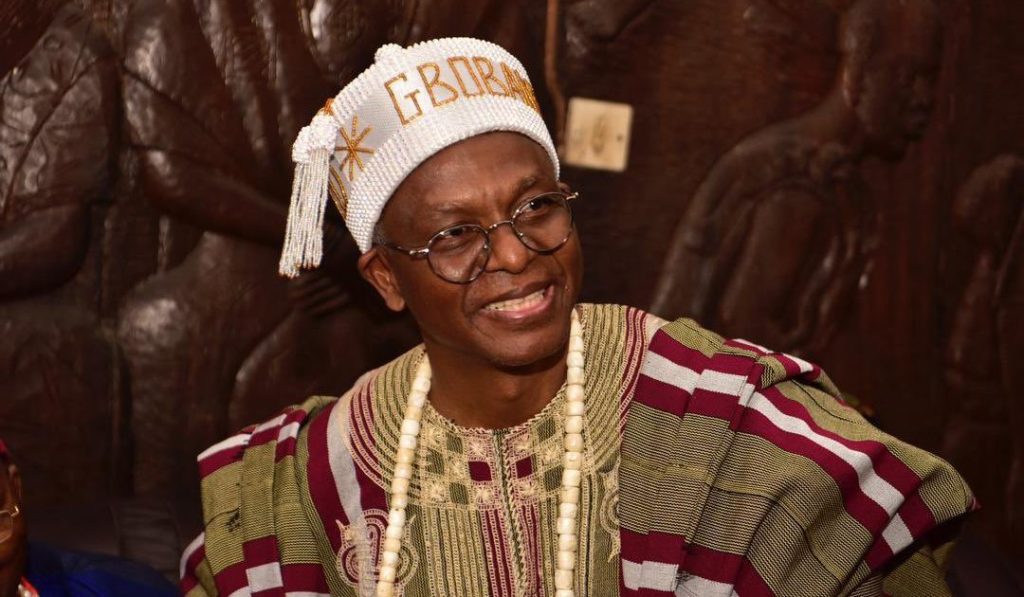Allegations of Criminal Conspiracy and Inciting Disturbances Against El-Rufai and ADC Leaders
Nasir El-Rufai, former governor of Kaduna State, and six leaders of the African Democratic Congress (ADC) have been summoned by the Nigeria Police Force over allegations of criminal conspiracy, inciting disturbance, and other related offenses. The summons, issued by the Force Criminal Investigation Department (FCID), followed a petition submitted by a group known as the Bureau for Investigative Journalism and Transparency. The petition accuses El-Rufai and the ADC leaders of making inflammatory statements and engaging in activities that could potentially incite public unrest and disrupt public peace, particularly in the context of the 2023 general elections. The police summons directs the accused individuals to appear at the FCID headquarters in Abuja to respond to the allegations.
Details of the Allegations and Supporting Evidence
The petition reportedly details specific instances where El-Rufai and the ADC leaders are alleged to have made provocative pronouncements. These include public statements, interviews, and social media posts that allegedly contained divisive language, ethnic slurs, and incitements to violence. The petitioners claim these actions violate various sections of the Nigerian Criminal Code and other relevant laws meant to maintain public order and security. Alongside their petition, the Bureau for Investigative Journalism and Transparency is said to have submitted supporting evidence, including transcripts of speeches, video recordings, and social media posts attributed to the accused individuals. This evidence is intended to substantiate the claims made in the petition and provide a basis for further police investigation.
El-Rufai and ADC’s Response to the Allegations
El-Rufai and the ADC leadership have publicly refuted the allegations, characterizing them as politically motivated and a deliberate attempt to tarnish their reputations. They argue that their statements have been taken out of context and misconstrued to create a false impression of incitement. El-Rufai insists that his political discourse has always been within the confines of the law and focused on issues of national development. The ADC leaders similarly maintain their innocence, stating their commitment to peaceful and lawful political engagement. They have vowed to cooperate fully with the police investigation to clear their names and expose what they believe to be a malicious smear campaign.
Legal Implications and Potential Consequences
If the police investigation finds credible evidence to support the allegations, El-Rufai and the ADC leaders could face criminal charges. Inciting public disturbance, criminal conspiracy, and related offenses carry varying penalties under Nigerian law, including imprisonment and fines. The legal process involves thorough investigation, potential arrests, court proceedings, and, if convicted, the imposition of sentences as deemed appropriate by the courts. The outcome of this case will have significant legal implications for the accused individuals and could set a precedent for future instances of alleged incitement and political speech.
Political Context and Impact on the 2023 Elections
The timing of these allegations, shortly after the 2023 general elections, adds a layer of political complexity. El-Rufai has been a controversial figure in Nigerian politics, known for his outspokenness and strong political views. The allegations could potentially impact his political future and influence the trajectory of the ADC as a political party. The case has already generated substantial media attention and public debate, raising concerns about freedom of speech, political persecution, and the use of legal instruments to settle political scores. The developments surrounding this case will likely continue to shape the political landscape in the coming months.
Implications for Freedom of Speech and the Role of Law Enforcement
This case raises important questions about the balance between freedom of speech and the need to maintain public order. While freedom of expression is a fundamental right, it is not absolute and can be restricted in certain circumstances, particularly when it incites violence or poses a clear and present danger to public safety. The police investigation into these allegations will test the boundaries of permissible political speech in Nigeria and the role of law enforcement in regulating political discourse. The outcome of the case will likely have lasting implications for how political speech is interpreted and regulated in the country, impacting both individuals and political parties alike. It also underscores the crucial need for responsible and measured political communication to avoid inflammatory rhetoric and maintain a peaceful and democratic environment.


